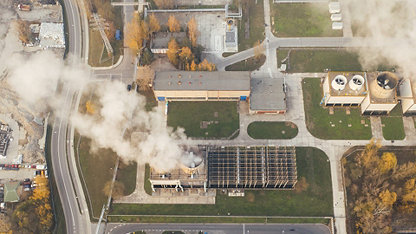This is the first in a series of policy ‘deep dives’ looking at our response to sectors across the built and natural environment as we prepare for the General Election.
Land underpins many social, economic, environmental and cultural objectives through its indispensable role in our economy. From the rural economy, food security (and related employment) to promoting sustainable land use (including mineral extraction), providing housing, quarrying essential minerals, renewable energy provision, forestry, recreational open space and carbon mitigation, the management and use of land is critical to the UK’s future.
RICS recognises that these uses require strategic choices and that some are complimentary while others potentially conflict with each other. RICS supports the United Nations Sustainable Development Goals (SDGs) and our policy and practice contribute to achieving the objectives set out within them. Alongside this, we recognise the need to increase housing supply and the vital contribution land use can make.
In this General Election, RICS is asking political parties to address the eight key policy and practice areas, identified by RICS members.
- Access to development land at viable prices
- One of the key challenges in delivering housing is to gain access to land at prices which are viable for development and at the same time incentivises land to come forward.
- Development funding
- The renewed focus on brownfield development is welcomed, particularly to help alleviate housing pressures in urban environments. Nevertheless, a brownfield first policy may result in a hierarchy of land accessibility, leading to a constriction in supply and without access to funding, development will not take place at the scale required to address the housing shortfall.
- Infrastructure provision and funding
- There is increasing stress in all areas of infrastructure necessary to deliver housing and its supporting land uses to meet sustainable development requirements. This includes water scarcity; national grid capacity; limited sewerage capacity; limited transport capacity; flood risk.
- Land value sharing
- RICS advocates a clear distinction between levies imposed on development to meet planning obligations necessitated by the development and those imposed as general taxation measures on land as part of the planning system.
- Green Belt review
- RICS advocates a review of national Green Belt policy in the light of the changed circumstances since the policy was introduced. Green belt release should be considered in the context of development which is planned alongside existing and proposed infrastructure programmes.
- Nutrient Neutrality/Biodiversity
- We call on the need for an agreed method on how biodiversity is to be valued and delivered in a development context. With respect to nutrients, phosphate and nitrate levels are having a detrimental impact on development and within the agricultural sector. RICS supports mitigations to achieve nutrient neutrality (and third-party mitigation schemes, where appropriate) and calls for greater nitrate removal at source by water companies to reduce the need for further mitigations.
- Administrative efficiency of the planning service
- Rather than wholesale reform of the existing system, adequate resourcing of the current regime would make an immediate contribution to reducing risk associated with planning applications and speed up delivery of developable sites.
- Promoting sustainable land use
- RICS advocates a comprehensive and strategic approach to land use, one which includes the sustainable extraction of mineral resources which are essential to the development of infrastructure and the wider UK economy. Sustainable land use will balance all the various competing uses of land in a holistic and considered manner.











